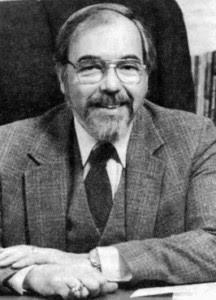There’s a familiar refrain I hear often, particularly online, when someone expresses admiration for the early years of the roleplaying hobby. Such admirers are “blinded by nostalgia,” they say. They're clinging to a past that never really existed, refusing to acknowledge the supposedly self-evident truth that “things are just better now.” It's a common accusation, one that I've been hearing since the dawn of the Old School Renaissance almost twenty(!) years ago. Frequently, the accusation comes with the smug certainty of progress, for surely only a fool would prefer the clunky rulebooks, crude illustrations, and amateur layout of the 1970s to the sleek, professional products of today?
Let me be clear: I am nostalgic – proudly so – but I am also not blind.
Nostalgia, like memory itself, is selective. It remembers what it values, sometimes to the exclusion of what it should not forget. That is both its virtue and its danger. If I may be permitted to indulge briefly in my academic training, I'm reminded of Friedrich Nietzsche's 1874 work On the Advantage and Disadvantage of History for Life, in which he cautioned against what he called “antiquarian” history. Antiquarian history, according to Nietzsche, is the kind that reveres the past so much it embalms it, turning it into a shrine rather than a source of life. At the same time, Nietzsche also warned against what we might now call presentism, which is to say, the uncritical acceptance of the Now as inherently superior, merely because it is newer.
In the context of RPGs, nostalgia often gets a bad rap. It’s treated as a distortion field, a kind of mental defect that prevents one from recognizing “how far we’ve come.” This perspective assumes that progress is inevitable, uniform, and always desirable. I simply don't buy that. I don't think it's true in art or the wider culture more generally, so why should it be true in the case of roleplaying games?
When properly tempered, what nostalgia offers is a connection to formative experiences, the kind that shaped our imaginations and ways of thinking. When I return to In Search of the Unknown or the three little black books of Traveller, I don’t do so out of some longing for childhood simplicities. I return because those works still mean something to me. They still inspire. Their limitations are part of their magic. The blank spaces, unspoken assumptions, and rough edges still invite interpretation and invention today as they did when I first read them decades ago.
Of course, nostalgia can deceive. It can sand off the roughness, forget the arguments over rules, and the unexamined biases of early texts. It can create a false Golden Age that never really existed. That is its disadvantage and it’s a very real one. No less real is the disadvantage of neophilia, the mindless embrace of the new for its own sake, which too often confuses polish with depth and complexity with quality.
We must also be honest about the social dynamics of the early hobby. It could be insular and off-putting to some. Though this was not my own experience, I know from talking to others that some of those early communities were not especially welcoming. Consequently, some of the changes in the contemporary RPG scene may be for the better. To the extent that the hobby today is more accessible than it might have been in the past, that's worth celebrating. At the same time, we must take care that, in acknowledging these improvements, we do not simply condemn the past as unworthy of our continued affection.
The truth is, the early hobby, the one I entered as a kid, didn’t just introduce me to games. It cultivated in me a lifelong love of history, philosophy, languages, art, and literature. It did this not in spite of its amateurishness, but often because of it. Those early games were demanding. Their rules were opaque. Their references were obscure. However, rather than alienating me, their opacity invited me to learn more – to dig deeper, to grow. That’s not something to be dismissed lightly.
Certainly, there were problems in the past, just as there are different problems today. That’s life. Every era has its strengths and its blind spots. The trick is not to pretend otherwise, but to recognize that nostalgia, when used well, can be a guide to what mattered and what still matters.


















